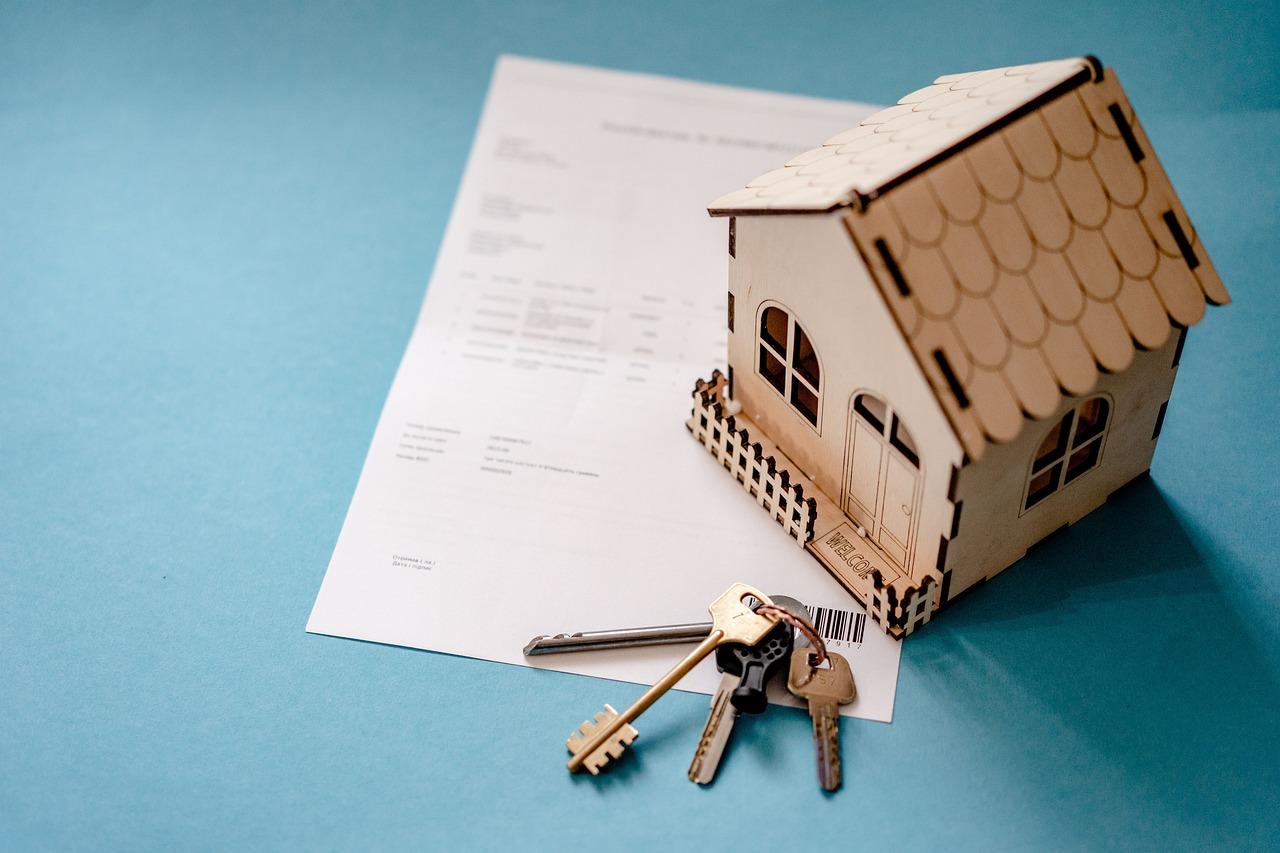What Credit Score Do You Need for a Mortgage?
Our guide explores what a credit score is, what number you need for a mortgage, and how to boost your rating.
Published:
When you purchase through links on our site, we may earn an affiliate commission. Here's how it works.

Finding the perfect home is an exciting milestone. But for most people, paying the full price upfront is just not an option. That’s where a mortgage comes in—it lets you spread the cost over time through monthly payments.
That said, a mortgage isn’t guaranteed for everyone. After all, it’s a big financial commitment, and lenders need to check that you can repay the loan. One way to do this is by looking at your credit score. But what is a credit score, and what number is good enough to get that mortgage?
In this guide, we break it all down. Whether you’re just getting started on your mortgage journey or wondering whether your financial history will be suitable, we explain what credit score you need for a mortgage and how to boost your chances of approval and get closer to buying your dream home.
Key takeaways
- There’s no specific minimum credit score you need to get a mortgage in the UK.
- Having a higher credit score can help you get approved and access a better deal.
- With a poor credit score, you may still be able to get a mortgage with a specialist provider or loan type, but the terms may be less favourable.
- You can build your credit score by making regular payments on time, registering on the electoral roll, and avoiding further debt before applying or reapplying.
What is a credit score?
Your credit score is a number that helps lenders understand how reliable you are at managing credit based on your financial history. It’s determined by factors like your payment history, how much credit you use, the types of credit you have, the length of your credit history, and recent applications.
A higher score shows that you have paid bills and loan repayments on time and haven’t taken out too much credit. A lower score could signal that you’ve missed repayments, taken on more credit than you can manage, or applied for credit too often.
There are 3 main Credit Reference Agencies (CRAs) that calculate a score: Experian, Equifax, and TransUnion. They compile your score using information from lenders and public data.
Credit Reference Agency (CRA) | Score range | Band labels |
|---|---|---|
Experian | 0 - 999 |
|
Equifax | 0 - 1,000 |
|
TransUnion | 0 - 710 |
|
What is the minimum credit score you need to qualify for a mortgage?
There is no universal minimum mortgage credit score to qualify for a mortgage in the UK because each lender sets their own criteria, which also includes other factors like your income, deposit amount, and debt levels.
However, a credit score still forms part of the overall picture of your finances and is used to make a decision about your mortgage application. As a general guide, good credit scores boost your chances of securing a mortgage with favourable terms, while poor scores may lead to a disadvantage, but not necessarily a rejection.
How your credit score affects mortgage approval and terms
Having a higher credit score can raise your chances of mortgage or remortgage approval (although this may still depend on other aspects of your finances). Moreover, it can also help you access the best mortgage deals, i.e., lower interest rates, smaller deposit requirements, and a larger loan amount.
By the same token, having a poor credit score can lower your chances of a mortgage approval and limit you to offers with higher interest rates and larger deposit requirements. You may also need to lower the amount you’re looking to borrow, perhaps by choosing a cheaper property.
Can you get a mortgage with bad or fair credit?
Most lenders prefer good to excellent credit scores, and mortgage offers for individuals with low credit scores are less common after the financial crash in 2008.
However, you can still get a mortgage with fair to poor scores, depending on the lender and your full financial situation, including your income, employment status, deposit size, and recent credit history. That said, be prepared for a larger deposit, higher interest rates, and fewer mortgage options.
Here are some ways to get a mortgage despite a fair to poor credit score.
- Use a specialist lender: Some lenders specifically work with applicants who have bad or fair credit.
- Consider a guarantor mortgage: This is when someone else, usually a family member, guarantees the loan by agreeing to pay if you default.
- Improve your credit score: If your credit score is getting in the way of your mortgage, you could take some time out to improve your credit score before applying or reapplying.
Check mortgage lender reviews and ratings on Review Centre and leave your own reviews to help other homebuyers.
How to improve your credit score for a mortgage application
To boost your credit score, you could consider some of the following actions:
- Double-check your credit report across all CRAs, and dispute any errors that could damage your score unnecessarily.
- Register on the electoral roll at your current address so lenders can verify your identity.
- Repay existing debts and other financial commitments on time, including any credit cards, loans, car financing, phone contracts, and other regular bills.
- Avoid multiple credit applications. Applying for credit too many times can signal risk to lenders and lower your score further.
- Use a credit builder tool. Platforms like Experian Boost report everyday payments—like paying your Netflix or council tax, or paying into savings and investment accounts—and share this data with participating lenders.
Does taking out a mortgage affect your credit score?
When you first take out a mortgage, it can have a small but temporary effect on your credit score. This is because every time you apply for a mortgage, your lender conducts a full or “hard” credit check, which leaves a mark on your credit report—signalling a potential financial risk to lenders.
When your mortgage is approved, your credit score may dip again because you’ve just taken out a large loan and don’t have any evidence of making repayments yet. Making regular repayments over time will improve your credit score, as long as you don’t damage it in other ways, like taking on more debt or maxing out your credit cards.
How to check your credit score
You can check your credit score in 3 ways:
Get a report from a CRA
Use 1 of the 3 CRAs—Equifax, Experian, or TransUnion—to get a report of your credit history and your current credit score. While each agency compiles its scores slightly differently, potentially leading to slightly different results, the score should give you a rough sense of where you stand.
Comparing Credit Reference Agencies? Browse CRA reviews and ratings on Review Centre or leave your own insights to guide other applicants.
Use third-party services
You can also opt for free alternative services like ClearScore or TotallyMoney, which pull from a CRA (such as Equifax or TransUnion).
Choose an aggregated report
Some services, like CheckMyFile or CreditKarma, can create an aggregated report from 2 or 3 of the CRAs. This can give you a more comprehensive understanding of your credit score, especially if you don’t know which CRA your lender will refer to.
Plus, it can save time and money if you want to check multiple ratings. However, check what level of detail they provide and what they charge before making a decision.
